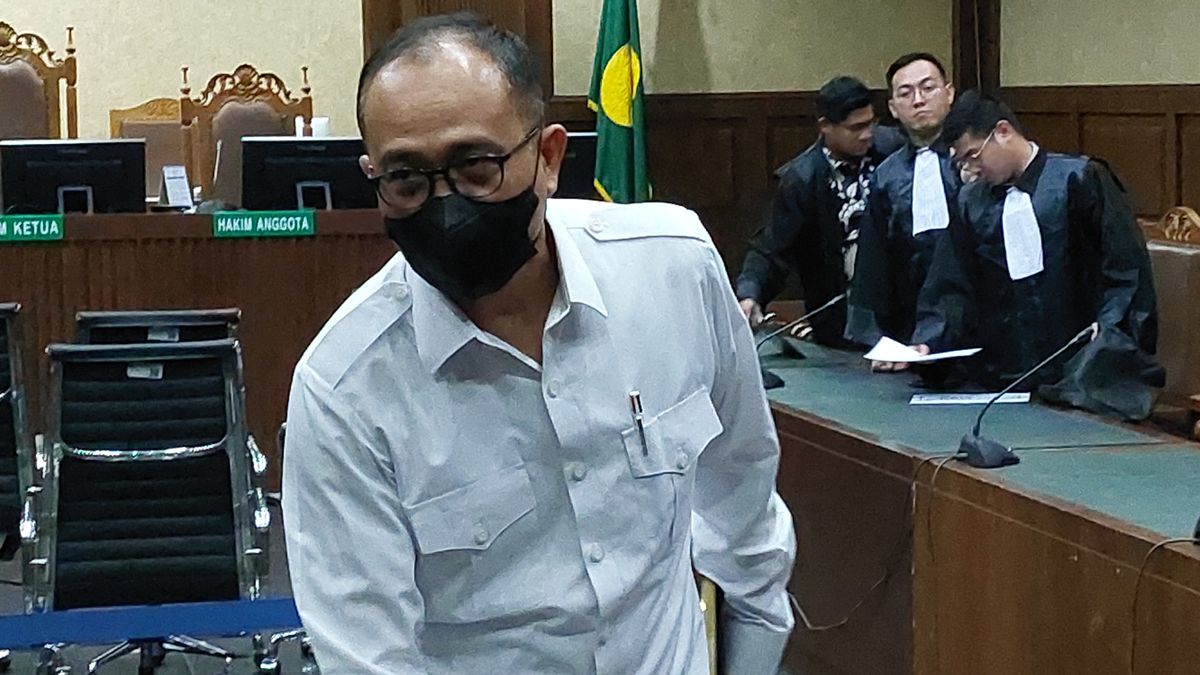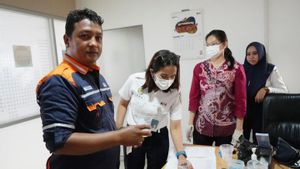JAKARTA - The public prosecutor (JPU) at the Corruption Eradication Commission (KPK) said that if the expiry date for criminal acts of corruption and money laundering or TPPU was calculated from the time they were committed, then all the perpetrators would not be able to be punished. Because they will first run away or destroy evidence.
The prosecutor made this statement in response to defendant Rafael Alun Trisambodo's exception or defense note which stated that the prosecutor's indictment regarding gratification and TPPU as charged had expired because it occurred in the period 2002 to 2013.
"If the criminal act of corruption or TPPU is counted after the date of the criminal act, it will mean that the person who committed the crime cannot be punished because it has already been committed.
ran away and/or lost evidence," said the prosecutor during the trial at the Corruption Court at the Central Jakarta District Court, Wednesday, September 13.
Even if the calculation starts from no crime being committed, the perpetrators of corruption and TPPU could hide and then emerge after 18 years or after the prosecution expires.
Apart from that, based on the facts of the investigation and the indictment, Rafael Alun Trisambodo was charged with committing further acts as stated in Article 64 paragraph 1 of the Criminal Code.
The acts of corruption and gratification allegedly committed by the defendant Rafael Alun Trisambodo were extraordinary crimes and were carried out covertly.
So the expiration period is calculated from the time it is revealed by law enforcement officials, not when the criminal act was committed.
"So the defendant's legal advisor's excuse that the public prosecutor's first and second charges violated the statute of limitations is without legal basis and must be rejected," said the prosecutor.
Baca juga:
- Mahfud MD Minta Publik Hati-hati Permainan Politik Identitas di Pilpres
- Halo-Halo Bandung Dijiplak Jadi Hello Kuala Lumpur, Menko Muhadjir: Nanti Diproses soal Hak Cipta
- Jokowi: Daya Saing RI Naik 10 Level karena Pembangunan Infrastruktur
- Presiden Tegas Minta Aparat Tidak Represif di Rempang, Masyarakat Dapat Ganti Untung dari PSN
Previously, the defendant Rafael Alun Trisambodo asked the panel of judges at the Corruption Court at the Central Jakarta District Court to acquit him of all charges in the alleged case of receiving gratuities and the crime of money laundering (TPPU) which he was accused of being deemed to have expired.
Rafael Alun Trisambodo's gratification and TPPU cases are considered expired because the alleged criminal acts charged by the prosecutor occurred in the period 2002 to 2013.
This reason refers to Articles 78 and 79 of the Criminal Code which regulate the expiry period for prosecution.
"Based on the description of the article in the first indictment, the elements of Article 12B of the Corruption Law are included in Article 78 paragraph 1 number 4 with an expiry period of 18 years," said attorney Rafael Alun Trisambodo.
"The defendant was charged with acts of gratification which were considered giving bribes which were carried out since 2002 or 21 years ago," he continued.
As a reminder, Rafael Alun Trisambodo was charged with receiving gratuities amounting to IDR 16.6 billion. The reception was carried out with his wife, Ernie Meike Torondek.
Then, the prosecutor also charged him with the crime of money laundering (TPPU) worth IDR 101 billion.
The TPPU value charged is the result of accumulation. Where, Rafael Alun received gratification in two different periods. Then assign it to a financial services provider and spend the asset.
The English, Chinese, Japanese, Arabic, and French versions are automatically generated by the AI. So there may still be inaccuracies in translating, please always see Indonesian as our main language. (system supported by DigitalSiber.id)













